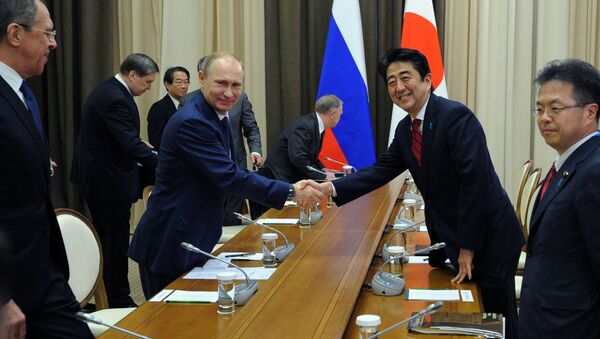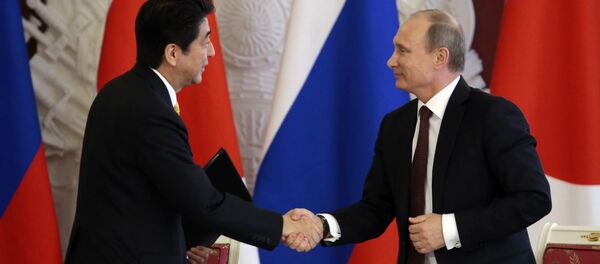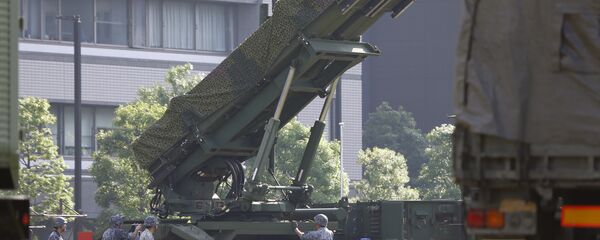Meanwhile, according to a recent nationwide survey conducted by the Japanese newspaper Mainichi Shimbun on November 5-6, 57 percent of Japan's public said that the country’s government should be flexible in solving the territorial dispute with Russia, while 25 percent of those surveyed favored a tougher approach, claiming that the four islands – Iturup, Kunashir, Shikotan and Habomai – should be transferred to Japan. Nine percent of the respondents had no interest one way or the other.
Sputnik Japan asked Dmitry Streltsov, an expert in international relationships and a specialist in Japanese affairs, what could have caused the change in public opinion over the territorial dispute with Russia. In Streltsov’s opinion this positive shift is a result of the long-term trend which can be traced in Russo-Japan relations over the last few years.
“This trend echoes Japan’s understanding of the fact that a firm stance in talks with Russia on territorial dispute gives no chance to success,” the expert said.
He specified that Japan’s firm stance has so far never led to any progress, and is unlikely to lead to any positive changes in the future. Streltsov explains that Japanese society has finally realized that this is the case and so the nation has adopted a more realistic approach.
“The understanding that Japan and Russia cannot do without each other, that they should develop their relations and deepen their connections, is growing in the political circles of both countries,” Streltsov said.
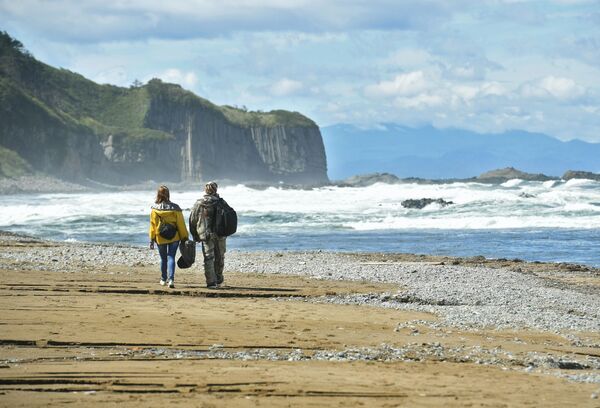
He added that to a large extent, this is down to the considerable efforts of Shinzo Abe. The government's stance of viewing Russia as an important partner for Japanese national interests is presented by the mass media and therefore gains public support, Streltsov believes.
“I think that the new generation of Japanese is friendlier toward Russia, and they understand that the territorial dispute can only be solved on the grounds of compromise and mutual advantage,” the expert concluded.
The promotion of economic cooperation can help to tackle the territorial dispute, many analysts believe. Currently, the Japanese government is making efforts to develop economic relations with Russia, hoping to create the necessary conditions to sign a peace treaty between the two states and resolve the territorial dispute.
One of the latest steps along this path was a visit by Hiroshige Seko, State Minister for Economic Cooperation with Russia on November 3 in Moscow. On his three day visit he met with senior Russian officials, including First Deputy Prime Minister Igor Shuvalov and Energy Minister Alexander Novak.
During these talks Moscow and Tokyo set out around 30 priority economic cooperation projects, which will be discussed on Putin's visit to Japan in December.
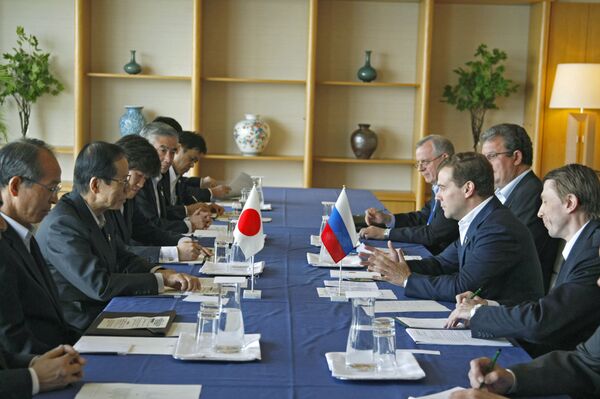
In September, Japan’s Prime Minister Shinzo Abe took part in the Eastern Economic Forum in Vladivostok, during which he had a three hour meeting with the Russian president.
Japan and Russia did not sign a permanent peace treaty after World War II due to a dispute over four islands, which Russia calls the Southern Kurils and Japan – the Northern Territories that include Iturup, Kunashir, Shikotan and Habomai.
On October 16, 1956, Tokyo and Moscow signed the Soviet–Japanese Joint Declaration, which ended the state of war and provided for trade development, the resolution of the territorial dispute and the eventual signing of the peace treaty. However, a solution to the territorial dispute has not yet been found.

